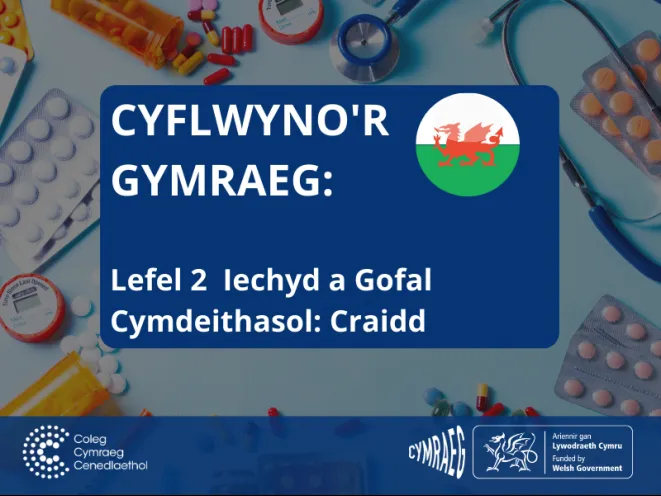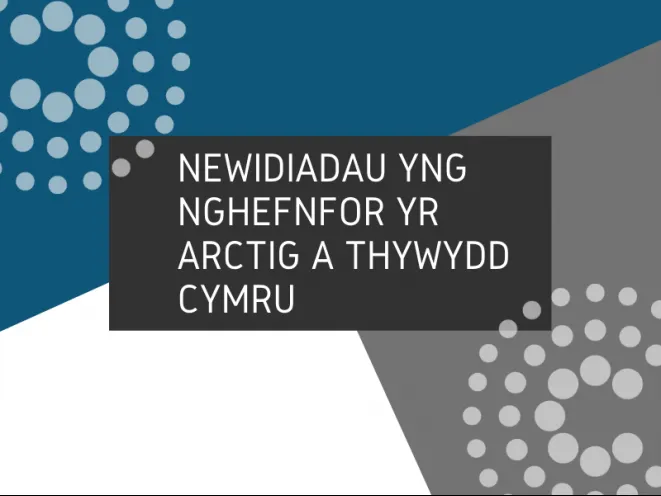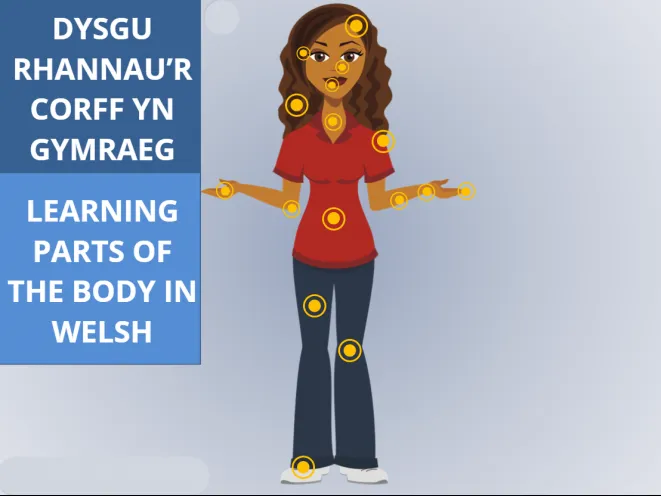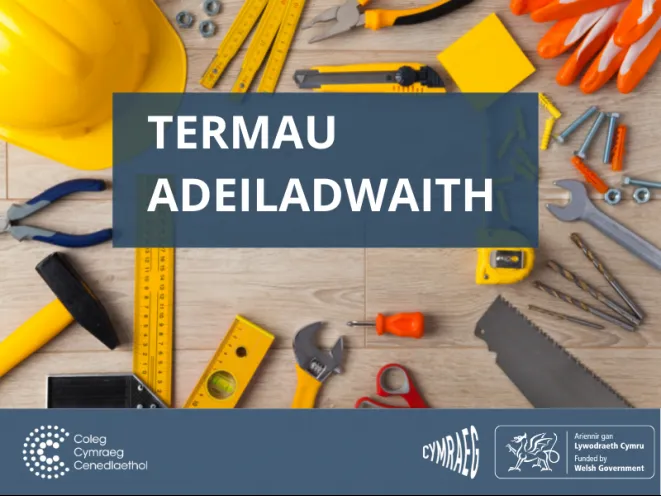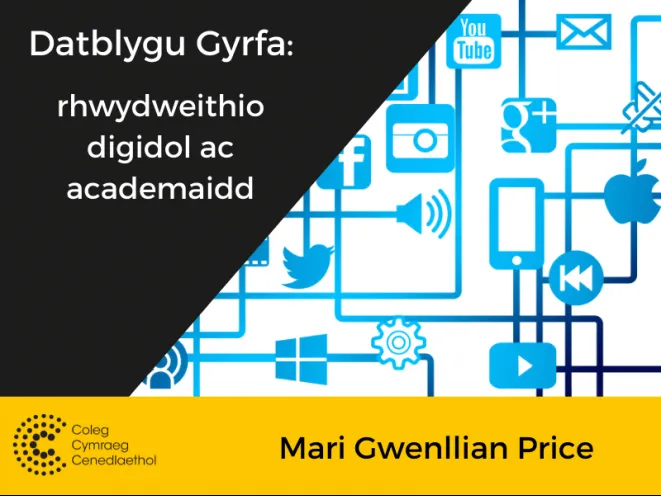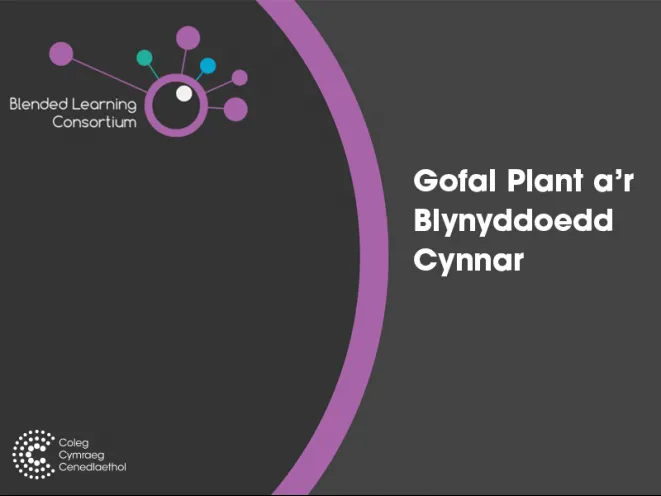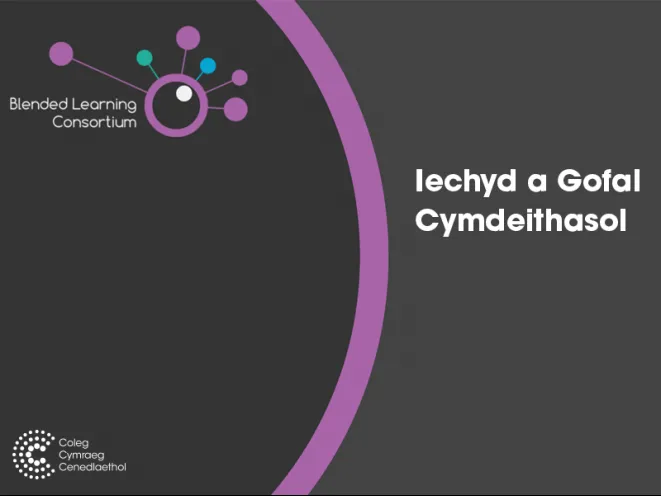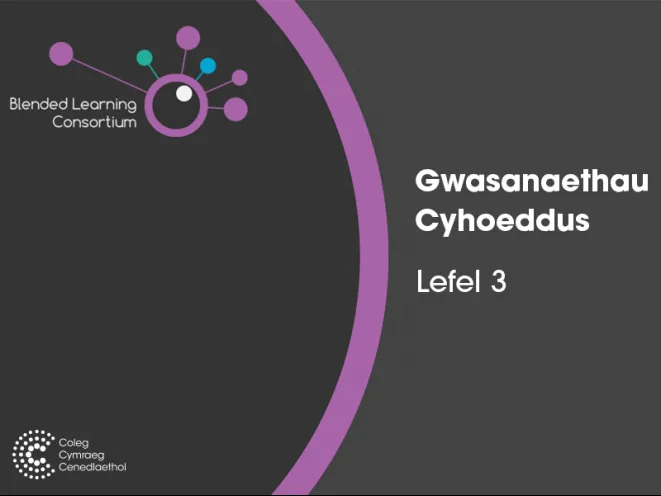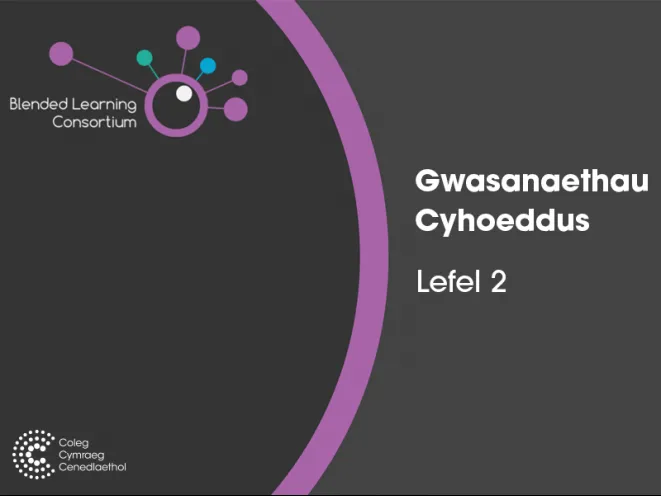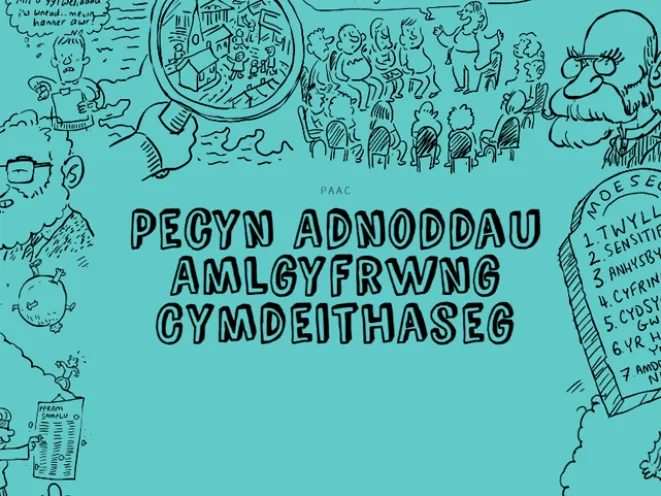This resource is a collection of resources to support educators who wish to introduce more Welsh in the delivery of the Level 2 Health and Social Care: Core course. The collection has been created to support educators in planning and setting classroom work activities or evidence based on learners' Welsh language skills. The collection includes: • a guide that explains how to use the resource. • 'Mapping the Opportunities to introduce the Welsh language' document for each core unit. • a series of tasks that meet the requirements of specific assessment criteria of the course. They demonstrate how it is possible for all learners to complete the same task, whilst developing their Welsh language skills at individual and appropriate levels. • bilingual posters of the key terms for each unit. • a resource that provides ideas for learners to use the Welsh language on work placements. The individual documents can be accessed below or you can download a zip file containing all of the files here.
Introducing the Welsh language: Level 2 Health and Social Care: Core
Changes in the Arctic Ocean and Welsh Weather
A 10-minute short film explaining how changes in the Arctic Ocean and the decline in sea ice can directly influence the patterns and systems of our weather here in Wales. The film follows the history of the main adventurers to date, to the disappearance of sea ice and the impact of that. It combines film work from the Arctic Ocean (filmed by Bangor University Scientists on location) with laboratory experiments as well as presentations in front of the camera. The video is aimed at University students as well as school pupils. The video is avaiable in Welsh only.
Learning parts of the body in Welsh
A short interactive activity to learn parts of the body in Welsh. Plural terms are also introduced.
Welsh Language Construction Terminology
A list of standard bilingual terms for the construction sector. The terms are suitable for students studying on level 1, 2 and 3 courses. There are key terms for the following subjects available below: Bricklaying Carpentry Painting and decorating Plastering The original content was created by Sgiliaith.
Guest Lecture: Dafydd Llywelyn, Dyfed-Powys Police and Crime Commissioner
In this guest lecture, Dafydd Llywelyn discusses the Police and crime plan for Dyfed-Powys, BAME recruitment and the influence of black lives matter. It is suitable for school learners and students who are studying Policing / Criminology / Public Services as subject areas.
Language awareness and bilingualism in teaching
The resource consists of four presentations: Part 1 - Language Awareness in the Higher Education Context Part 2 - Group Profiling Part 3 - Bilingualising a lecture or seminar Part 4 - Resources to support bilingual teaching Aims of the workshop: An introduction to language awareness in education, in the context of higher education. Develop an understanding of the importance of student profiling and how this information can be used to plan lectures and seminars. An introduction to a variety of practical techniques to bilingualize lectures and seminars and enhance students' language experience in English lessons. To share useful resources to support trainees/teachers to embed Welsh within lectures and seminars. Content: An update on national policies with regards to the Welsh language in Higher Education. An overview of the benefits of profiling students' language skills (ability, use and aspects of Welsh) and how trainees can use this knowledge to plan their teaching and create opportunities for students to use and develop their Welsh. Various and practical techniques for bilingual lectures and seminars. Advice on including Welsh key terms in English lectures. Overview of useful resources to support trainees to embed Welsh within lectures and seminars (e.g. Y Termiadur Addysg, Ap Geiriaduron, Cysgliad). At the end of this workshop trainees should be able to: Demonstrate an understanding of language awareness within higher education and its impact on students' decisions to consider submitting work through the medium of Welsh. Be aware of the importance of profiling students language skills, and develop strategies to gather information about students individual language profiles, so that this information can be used to plan lectures and seminars. Use a range of strategies to bilingualize lectures and seminars. Use a range of resources to embed Welsh within lectures and seminars. Presenters: Helen Humphreys, Sgiliaith As a mentor and trainer for bilingualism and Welsh in Further Education and Work Based Learning, my role enables me to inspire, share ideas, resources and good practice within these sectors. Having been a fully bilingual lecturer at Coleg Sir Gâr, I gained additional responsibility within the college as a Staff Learning Mentor for the Welsh Language. This role has been an opportunity to share good practice with college staff, monitor and develop their skills within the classroom before becoming a part time and then full time member of Sgiliaith in 2017. Sioned Williams, Sgiliaith Sioned Williams is a Professional Development Mentor and Trainer for Sgiliaith. Her core work is to provide staff training, support, advice and resources, and to share good practice in bilingualism and embedding the Welsh language with lecturers, tutors and assessors in the further education and work-based learning sector, with the aim of enhancing learners’ bilingual skills and experiences.
Career Development: Digital and Academic Networking
Aims of this workshop: To introduce networking as a key skill for developing your career, and to offer advice and information about how to network within an academic and digital context. Content: During this workshop, we will look at what is networking and how to go about using your networks to help you to plan, research and develop your career. The workshop will explain how to use a number of different social media websites within a digital and academic context, and focus in particular on LinkedIn and how you can make the most of the site’s potential to help students and graduates. At the end of this workshop, participants should: Feel confident about developing and using academic and digital networks Understand the potential benefits that different social media sites offer in terms of career networking Create an effective LinkedIn profile and understand how to use the site effectively Presenter: Mari Gwenllian Price Mari has worked for the Employability Service at Bangor University for almost 10 years and offers careers advice and workshops within the academic curriculum as part of her role. She has also worked on work placement schemes within the University and is part of the team leading on the delivery of the Employability Award. Mari has completed an MA in Careers Advice and Guidance in Higher Education through Warwick University, and chose the career motivations of Welsh speaking students as her dissertation research topic.
Childcare Resources
The collection consists of 5 blended learning sessions for learners studying Childcare at Level 2 & 3. The level of each individual resource has been noted in the title of each resource. The units can be viewed in your browser by following the links below. Colleges can also download a zip file containing SCORM files for all 5 units, which can be placed within their local virtual learning platforms. The sessions are bilingual, the English can be used as reference, but the questions and activities can only be answered in Welsh. Copyright Heart of Worcestershire College on behalf of the Blended Learning Consortium and Y Coleg Cymraeg Cenedlaethol. These resources are for use only in educational organisations and must not be modified or resold.
Health and Social Resources
This collection consists of 10 blended learning sessions for learners studying Health and Social Services at Levels 2 & 3. The level of each individual resource has been noted in the title of each resource. The units can be viewed in your browser by following the links below. Colleges can download a zip file containing SCORM files for all 10 units to place within their local virtual learning platforms. These sessions are bilingual, the English slides can be used as reference, but the questions can only be answered in Welsh. Copyright Heart of Worcestershire College on behalf of the Blended Learning Consortium and Y Coleg Cymraeg Cenedlaethol. These resources are for use only in educational organisations and must not be modified or resold.
Public Services Resources Level 3
This collection consists of 30 blended learning sessions for learners studying Public Services courses at Level 3. The units can be viewed in your browser by following the links below. Colleges can download a zip file containing SCORM files for all 30 units to place within their local virtual learning platforms. These sessions are bilingual, the English slides can be used as reference, but the questions can only be answered in Welsh. Copyright Heart of Worcestershire College on behalf of the Blended Learning Consortium and Y Coleg Cymraeg Cenedlaethol. These resources are for use only in educational organisations and must not be modified or resold.
Public Services Level 2 Resources
This collection consists of 30 blended learning sessions for learners studying Public Services courses at Level 2. The units can be viewed in your browser by following the links below. Colleges can download a zip file containing SCORM files for all 30 units to place within their local virtual learning platforms. These sessions are bilingual, the English slides can be used as reference, but the questions can only be answered in Welsh. Copyright Heart of Worcestershire College on behalf of the Blended Learning Consortium and Y Coleg Cymraeg Cenedlaethol. These resources are for use only in educational organisations and must not be modified or resold.
PAAC - Sociology Multimedia Resources Pack
A package of multimedia resources to support the teaching of sociology through the medium of Welsh. These materials are aimed at pupils studying Sociology A Level in schools across Wales, and first year students studying the subject at university.

